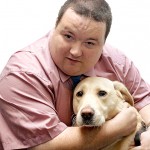
Given that autism spectrum disorders are characterised by deficits in social reciprocity and communication, there is a school of thought that suggests that exploiting the emotional aspects of human-dog relationships may hold potential to overcome some difficulties of people with ASD to relate and interact effectively with others.
The authors of this review set out to look at six published studies into the effects of brief interactions with dogs and the effects of introducing dogs in families with a child diagnosed with ASD. The studies mainly looked at social behaviours and language use.
They found a number of encouraging results in the studies, but the sample sizes were small and the designs had some methodological flaws.
They conclude that it is too early to suggest this intervention as way forward, but that results were sufficiently encouraging to point to the need for further research with better designs and larger samples to strengthen the evidence base and enable the intervention to be used in a clinical setting.
The authors also point to the potential application of child-dog interaction analysis as a tool for screening for early signs of autism.
Use of assistance and therapy dogs for children with autism spectrum disorders: a critical review of the current evidence, Berry A et al., in Section of Behavioral Neurosciences, Department of Cell Biology and Neurosciences, Istituto Superiore di Sanità, Rome, Italy.
